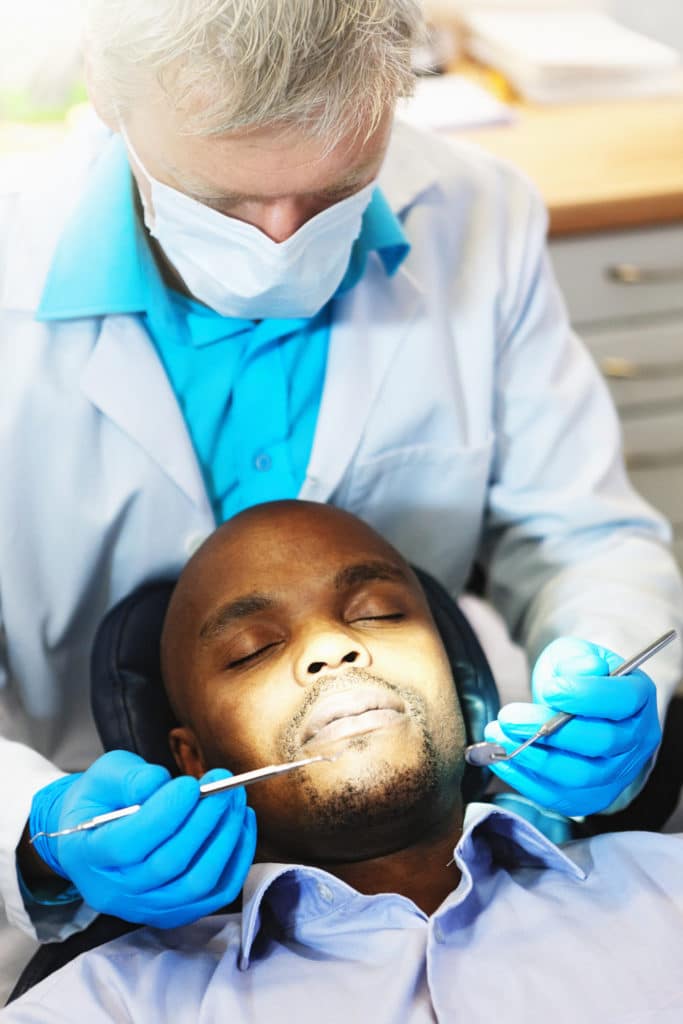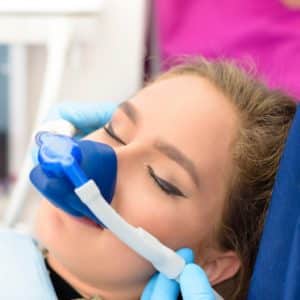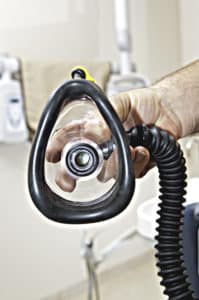
Fear of dental visits can be debilitating. Since it’s often related to traumatic experiences patients may have had as children, it can also be difficult to overcome. Many modern dentists, including Dr. Glenn LeSueur & Dr. Charles Dodaro offer alternatives that can help you get past your fear and get the dental care you need painlessly and without anxiety.
"Awesome experience! Amazing staff from the moment I called to schedule my appointment, the dental assistant was so sweet and explained everything to me. The doctor went above and beyond to answer all my questions and made me feel very comfortable."
What Is Sleep Dentistry (IV Sedation)?
Some dentists use general or IV anesthesia, and refer to this practice as “sleep dentistry.” With sleep dentistry, you are completely unconscious while dental work is being done. This may seem like a good idea at first, especially if your dental phobia is particularly intense, but it’s not the best approach to take. General anesthesia carries a number of risks and has a wide variety of possible side effects. The after-effects of general anesthesia can be extremely uncomfortable, involving intense nausea and grogginess.

What Is Sedation Dentistry?
The point of sedation dentistry is to provide peace of mind to the patient undergoing dental treatment. In most cases, it does not involve anesthesia, but simply puts the patient into a very relaxed state. Sedation dentistry makes use of a mild oral sedative and/or nitrous oxide (laughing gas) administered before or during your dental work. Sedation dentistry is a powerful tool to help you overcome your fear of the dentist and take care of dental work you may have been putting off for years.
Sedation Dentistry Vs Sleep Dentistry
While sedation dentistry is sometimes incorrectly referred to as sleep dentistry, the sedated patient is actually awake and can respond (but is very relaxed) and remembers little or nothing about the visit. When looking for a sedation dentist, though, it’s important to be sure you understand what the individual dentist means if they use the term “sleep dentistry.”
Dr. LeSueur practices sedation dentistry, and is a member of the Dental Organization for Conscious Sedation (DOCS) and never uses IV anesthesia. General anesthetic and IV relaxation are the true “sleep dentistry” and are not used due to numerous risks inherent in their use..
By contrast, in sedation dentistry, oral sedation or nitrous oxide leaves you in a thoroughly relaxed, “floaty” state. You’re aware of what’s going on, but with no anxiety or fear whatsoever. If you opt for nitrous oxide, you can even drive yourself home after your procedure and many times you will have no remembrance of the procedure at all. Be sure to arrange a driver if you have oral relaxation, though, as the effects take longer to wear off.
What Are The Advantages Of Sedation Dentistry?
Sedation dentistry is a protocol through which people who are anxious to see the dentist can receive the care they need to maintain healthy teeth and gums. There are several advantages to the use of dental sedation, including:
- Years of clinical testing and use have proven sedation techniques safe and effective.
- The use of sedation allows patients to complete multiple treatments in one visit.
- Sedatives calm the central nervous system, which reduces awareness of the sights and sounds of the dental office.
- Using sedative as an alternative to anesthesia, patients can breathe and swallow on their own. No intubation is necessary.

- Sedation enables patients with cognitive and physical disabilities to comfortably receive dental care.
- Patients are unlikely to remember much, if anything, about their dental visit due to the amnesiac effect of some sedatives.
- Our methods of sedation are also advantageous because they are easy to administer without a needle.
What Advantages Of Sleep Dentistry?
Sleep dentistry is somewhat of a misnomer. Usually, when people use the term sleep dentistry, they are referring to sedation techniques such as oral conscious sedation. However, there are some dentists who administer full anesthesia that puts patients into a sleep state. This is usually achieved with IV anesthesia. The advantages of sleep dentistry are identical to those that can be achieved with conscious sedation, except that patients are not aware of their surroundings when under deep anesthesia.
What Are The Disadvantages Of Sleep Dentistry?
While sleep dentistry may sound appealing, the disadvantages of this approach are the risks that are associated with anesthesia. When a person is anesthetized, it is necessary to monitor their vital signs and, in some cases, insert a breathing tube for safety reasons. Anesthesia can also leave side effects such as nausea and grogginess that last several hours.
What Are The Disadvantages Of Sedation Dentistry?
Sedation dentistry is not without disadvantages. However, these are mild and related only to oral conscious sedation, not to nitrous oxide. When using an oral sedative, patients must wait a short time to feel the effects of their prescribed medication. In many cases, the sedative is taken at home about an hour before a dental visit. Because oral medications are digested and metabolized, there is no way to predict how much a medication will affect the central nervous system. Every person is different and some may achieve relatively little relief using this approach. Finally, because the effects of sedation include grogginess and limited alertness, patients must be driven to the office and back home again. The disadvantages of oral conscious sedation are well-managed by a DOCS certified dentist.
Am I A Good Candidate For Sedation Dentistry Or Sleep Dentistry?
If you have a fear of seeing the dentist, you may be a great candidate for sedation dentistry. The two forms of sedation we offer, nitrous oxide and oral conscious sedation, have been widely used. Each offers significant effects to reduce dental anxiety in patients of all ages.
Will I Be Able To Move During Deep Conscious Sedation?

Can I Drive Myself Home Afterward?
You may drive yourself home after dental treatment that has included nitrous oxide sedation. This is because nitrous oxide wears off in less than 5 minutes so you will be fully alert. The effects of oral conscious sedation wear off more gradually. If you choose this option, you will need someone to drive you home after your appointment.
Schedule An Appointment
For more information on sedation dentistry at Drs of Smiles, call and schedule an appointment at 480.834.6991 today! Dr. Glenn LeSueur and Dr. Charles Dodaro serve Mesa, Gilbert, Phoenix, Arizona, and surrounding areas.
Dr. Glenn LeSueur and Dr. Charles Dodaro are Mesa dentists, serving Phoenix, Scottsdale, Tempe, Gilbert, Chandler, and other East Valley Cities in Arizona, combine LVI training and state-of-the-art technology to bring you, and your entire family, the very best and healthiest cosmetic and neuromuscular dental care.
Visit our before and after gallery to see the results we are able to achieve for our patients. Please contact or call 480.834.6991 to schedule a consultation at Drs of Smiles.
